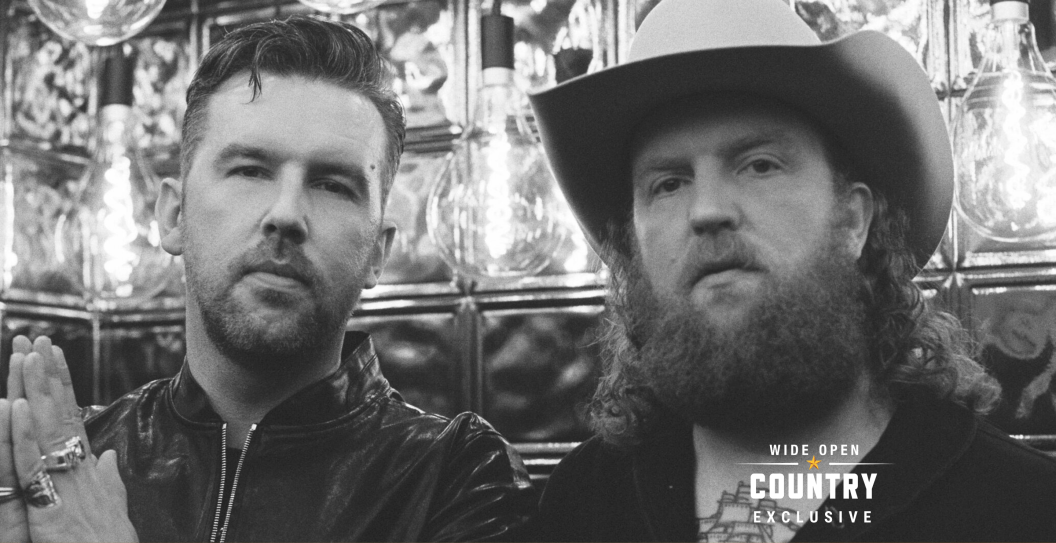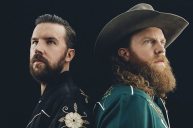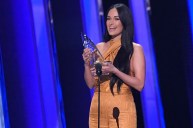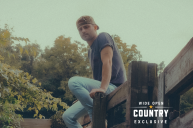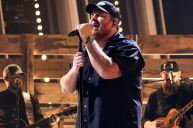Since the release of their 2020 album Skeletons, a lot has changed for Brothers Osborne, the reigning CMA Vocal Duo of the Year. In 2021, younger brother T.J. came out as gay in an interview with TIME, making him the first openly gay man signed to a major country label. John opened up about his struggles with anxiety and depression, which had led him to consider quitting music in 2019. (Since then, John has shared that he was able to get the help that he needed through therapy and the support of friends and family.)
Videos by Wide Open Country
The past three years have only highlighted what fans love about the hometown heroes from Deale, Maryland, one of country music's most fearless acts. Life changes and newfound freedoms inspired the duo's most uninhibited album to date: Brothers Osborne (out Sept. 15), their first album produced by Mike Elizondo (Sheryl Crow, Dr. Dre).
Wide Open Country caught up with John Osborne to talk about the duo's small-town Maryland roots, collaborating with Miranda Lambert and why they still feel like underdogs.
You and TJ have both talked about sharing more about yourselves -- both creatively and personally -- since the last record. Did that impact the recording of the album? It feels like such a joyful and triumphant record.
Life reflects art and art reflects life and where you are in the grand scheme of your life. It should have some sort of impact on your creativity if you're doing it right. I think since my brother has been a lot more open and vocal about his personal life and I've been more open and vocal about my personal struggles, we were able to be a lot more wide open creatively. It's funny, we intended on being a bit more focused and zoomed-in with this record in terms of the songs we were writing, in terms of the production and the sounds, but it actually ended up being one of the more broad records that we've done, and I think a lot of that has to do with the fact that we've felt this newfound of freedom to express ourselves in any way possible and not inhibit ourselves creatively.
It's also your first album with Mike Elizondo as producer. What was it like working with Mike?
We got to know Mike when we wrote together in 2017 or 2018 and I had been a fan of his for a long time. I'd met him through my wife years prior and I loved all the work that he did. The day we wrote, we just hit it off. It felt like hanging out with long lost friend.
He's so nice. He's so down to earth, but he is musically so incredibly deep and versatile. He is also -- at his core -- just a music nerd like we are. We threw around some ideas for producers for this album and landed on Mike. We knew we wanted to change it up because my brother and I just like to change things up and never get too comfortable. We both collectively agreed that Mike would be an obvious choice, but we wanted to try it out for our benefit and his benefit....It was like putting on a custom made pair of boots when we walked in there. It felt right and he's just a joy to work with and he absolutely brings it in the studio as a producer and musician and mostly as a person. We knew then and there that the process was so enjoyable and the outcome was more than we could have ever wanted, that this was the right choice for us and we were glad that Mike felt the same.
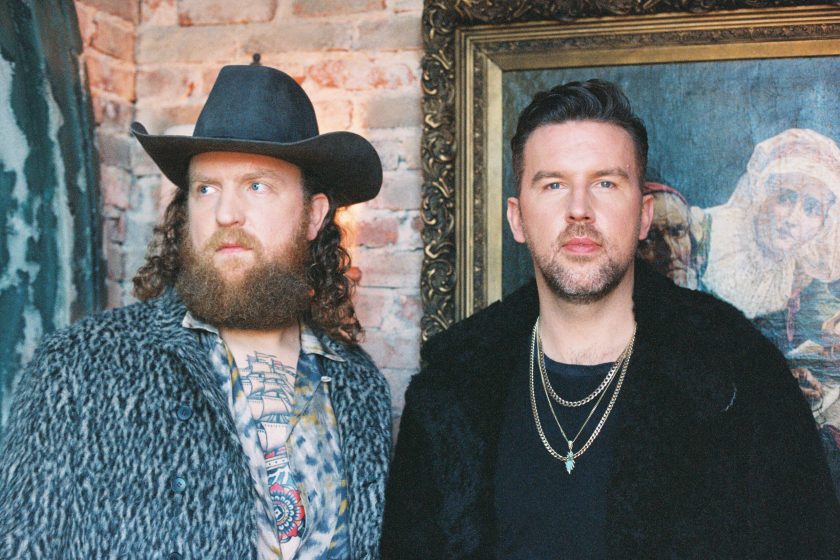
Natalie Osborne
Our hometown shaped us in a very unique way. When we did our initial radio tour, we got asked so many times, "How did you get into country music being from Maryland?" And we didn't know we weren't supposed to be into country music being from Maryland. [Laughs]
But as we move on in life and we grow, we realize that that place has such a huge impact on who we are as people and the type of music we create. I mean, I think it's why we sound different. I think it's why we act different. I think that's why we're just who are. We are outcasts. But if you just look at the geography, people from Pennsylvania think that we're from the south and people from Tennessee think that we're from the north. We kind of ride this really bizarre line of hometown boys and outcasts.
So that has a lot to do with why we even just sound the way that we do. I will say that I could not wait to get out of our hometown of Deale [Maryland] at 18 years old. I think most people feel that way when they're of age to leave. The further away I get from that town, the more I'm just drawn back to it. Every time I go there, I realize this is who I am and have been all along and it's beautiful.
You grew up playing music with your dad -- what's something you learned about performing from him?
My dad, I learned more about him doing plumbing than I did performing with him. And the reason is, initially when we started playing music together, my dad had been going to Nashville and seeing these bands play for four hours, so he was insistent that we play for four hours straight at our local bar, which is breaking, I think, all sorts of child labor laws because we were so young. [Laughs] I learned more about plumbing with him than I did about playing music because of his attention to detail and his work ethic. That's where I learned the most important things when it came to music. He showed me some basic chords, some basic fundamentals, but it was actually plumbing with him and working with him in more of a working man's environment -- [that's] where I learned the most.
It's been over 10 years now since you and TJ signed a recording contract. It must be such an incredible experience for you both to share that with one another. How much has it helped to have someone that you're so close to alongside you for this ride?
Honestly, I couldn't have done it without him for a number of reasons. I will say this industry is very difficult. From the outside looking in, it might appear fun and it is fun a lot of the time, but there are moments that are quite strenuous, very difficult and demanding. And to be able to do that with another person who also happens to be your brother, someone that you're blood related to, and you can say three words and he'll understand, whereas it would take 30 minutes or so speaking to someone [else] for them to understand -- [that] really helps. Also, it just kind of gives me a whole love and respect for artists that do it on their own because we have a hard time just the two of us, and for that, we're very lucky to have each other.
I love the song "Rollercoaster (Forever and a Day)." Is that song in reference to your career?
I mean it is and it isn't. It's a love song. It's a love song about people that is true. We watch the movies where the hero gets the girl and it's always a happy ending. Or you hear these love songs where it's all about how great it is, but that's utter bullsh*t. It's not always great. It's hard a lot of the time and when you get through the hard stuff is where you find real love...'Rollercoaster" is just you committing to going through all of the hard days with somebody because you truly love them. Anyone can be in love with someone when it's easy, but if you're in love with that person when it's hard, that's real love.
The song "Ain't Nobody Got Time For That" has a disco sound. How did that come together?
We got together with Jaren Johnston from the Cadillac Three and we wrote a few songs out in this cabin outside of Nashville. He's one of our best friends, one of our favorite people, and he's an incredible collaborator. I think he's just been obsessed with disco in the last couple of years of his life and he just started building this track and Lee Miller, who happened to be out there for this particular day, had this title. We thought it was hilarious because there's so much attitude involved, and I think the fact that we weren't in Nashville writing, it made us feel like we could do anything. We didn't have any guardrails on, and the song had been written in more of a Bee Gees fashion, so Mike [Elizondo, producer] in the studio was like 'I don't think we should steer from this. In fact, I think we should lean harder into it.' I remember we completely agreed because, again, going back to my brother and I being more open about ourselves, we felt creatively uninhibited. So if it doesn't work, who cares? We had a lot of fun doing it. Also, what we love more than anything is for someone to hear that and go, 'Okay, I didn't know you were allowed to do that.' That's one of the best feelings in the world, and if the song falls on its face, I don't care because I absolutely love it and it's one of my favorites to listen to.
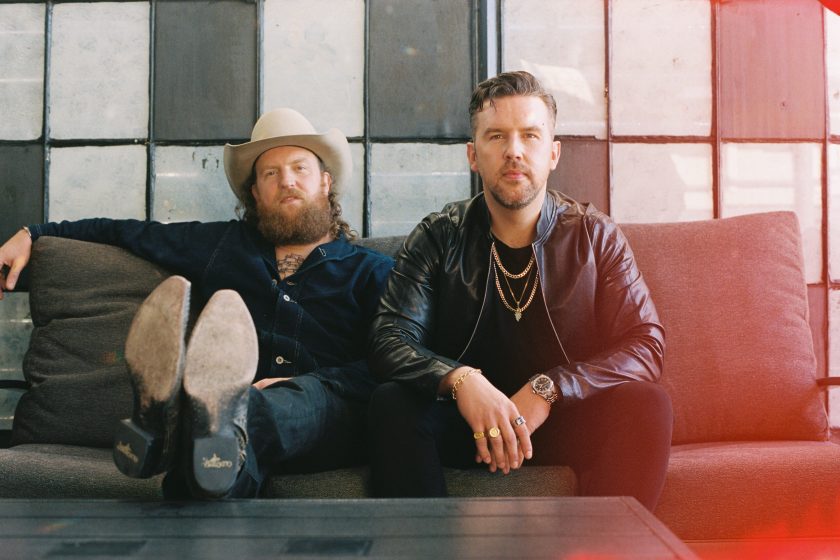
Natalie Osborne
You also collaborated with Miranda Lambert on this album. How did that come about?
Our publisher reached out about us writing together with Miranda a few years ago, and we jumped at the opportunity for obvious reasons. Miranda wanted to get more into co-writing, which is awesome. The only problem with writing with other artists though is a lot of times they want to bring their artist career and their vibe into the room... she didn't do that at all. The second she walked in that room, she left her artist career at the door and she wasn't Miranda Lambert, the artist she was Miranda Lambert, the co-writer.
She cares more about the song than anyone, and she had no ego in writing. She has great ideas, great intuition, but also has no qualms with someone saying no, which is a huge thing for a co-writer. She was just amazing and she's very uplifting. She's been one of our longtime friends. We absolutely adore her as a person and as a creator. She absolutely brings it. I mean, there's no mistake when you see someone like that who is that successful. They're that way for a reason, and it showed in that writing room that day. As we were singing the demo, she put her vocals on it, which are just dreamy and amazing with all of these layers, and we thought it was only fitting to have her sing on this track because she was such an inherent part of the songwriting process.
You and TJ have described yourself as sort of underdogs in country music. And you've mentioned feeling like an outcast. How does that feeling influence your approach to your career? Does it give you an extra drive?
